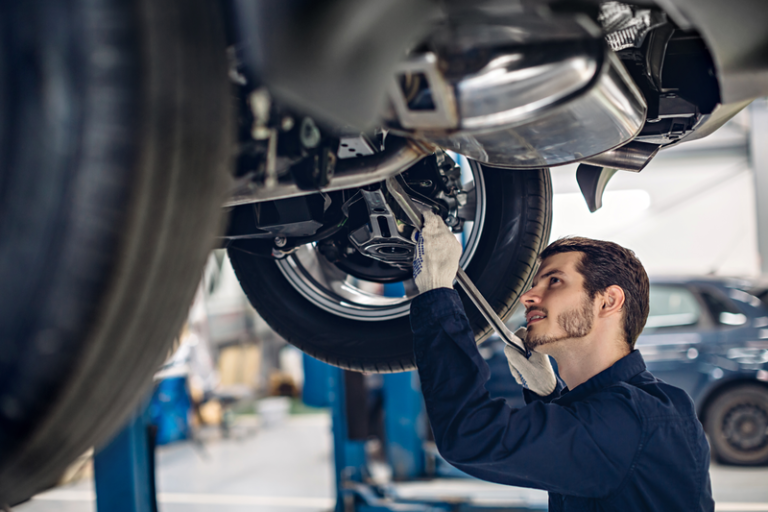Seja bem-vindo ao guia completo de manutenção automotiva DIY! Quer você seja um apaixonado por carros ou esteja apenas começando a se aventurar nesse universo, este manual abrangente foi elaborado para equipá-lo com as habilidades fundamentais necessárias para realizar a manutenção do seu veículo de maneira eficaz. Manter seu carro em dia não só diminui a probabilidade de reparos dispendiosos, mas também estende sua durabilidade, aprimora seu desempenho e, principalmente, eleva a segurança nas estradas.
The Importance of Regular Car Maintenance
Regular maintenance is crucial for your car’s longevity and performance. It prevents minor issues from turning into major repairs, enhances fuel efficiency, and ensures your vehicle remains safe and reliable.
Basic DIY Car Maintenance Tips
Embarking on DIY car maintenance can be rewarding and economical. Here are essential tips every car owner should know:
Checking and Changing Oil
The lifeblood of your car, oil lubricates the engine to prevent overheating and wear. Check your oil level monthly and change it as recommended by your car’s manufacturer. This is one of the simplest ways to extend the life of your engine.
Replacing Air Filters
A clean air filter improves fuel efficiency, reduces emissions, and ensures your engine receives clean air. Replace your air filter every 12,000 to 15,000 miles to keep your car running smoothly.
Maintaining Tire Pressure and Treads
Properly inflated tires ensure optimal fuel efficiency and safe handling. Check your tire pressure monthly and keep an eye on tread wear. Replace tires when the tread wear indicators are visible to maintain traction and safety.
Replacing Windshield Wipers
Visibility is key to safe driving. Replace your windshield wipers once a year or whenever they begin to leave streaks or miss areas of your windshield.
Checking and Replacing Lights
Regularly check all lights — headlights, taillights, brake lights, and turn signals — to ensure they’re working. Replacing bulbs is a simple task that greatly contributes to your safety and visibility on the road.
Advanced DIY Maintenance
For those who are more mechanically inclined, here are some advanced maintenance tasks:
Changing Spark Plugs
Replacing spark plugs can improve engine performance and fuel efficiency. This task requires a bit more skill but is doable with the right tools and instructions.
Battery Maintenance and Replacement
Keep your battery terminals clean to prevent corrosion and ensure a strong connection. Most car batteries need to be replaced every three to five years.
Replacing Brake Pads
Changing your brake pads is a more advanced DIY task that’s essential for safety. If you’re comfortable with more complex maintenance, learning to replace your brake pads can save you money and keep your car safe.
DIY Car Cleaning Tips
Keeping your car clean is just as important as mechanical maintenance:
Interior Cleaning and Care
Regularly vacuum the interior, clean the dashboard, and condition leather seats to keep the inside of your car looking new.
Exterior Washing and Waxing
Wash your car regularly to remove dirt and grime. Apply wax twice a year to protect the paint and keep your car looking shiny.
Safety Tips for DIY Car Maintenance
Always prioritize safety when performing DIY maintenance. Use jack stands when working under your car, wear protective gear, and never work on a hot engine.
Tools and Equipment Needed for DIY Maintenance
A basic set of tools, including wrenches, screwdrivers, and a jack, can help you accomplish most DIY maintenance tasks. Invest in a good quality set to make your maintenance tasks easier and safer.
Conclusion
DIY car maintenance is a rewarding practice that can save you money and extend the life of your vehicle. By following these tips and regularly checking your car, you can ensure it remains in top condition. Remember, always consult your car’s manual and seek professional advice when necessary.
FAQs
- How often should I change my car’s oil?
- Typically, every 5,000 to 7,500 miles, but refer to your car’s manual for specific recommendations.
- Can I replace my car’s air filter myself?
- Yes, replacing an air filter is a simple task that requires minimal tools.
- How do I know when to replace my tires?
- Replace tires when the tread depth is below 2/32 of an inch or if you see tread wear indicators.
- What’s the importance of maintaining tire pressure?
- Proper tire pressure ensures optimal fuel efficiency, safe handling, and prevents premature wear.
- Is it necessary to wax my car?
- Waxing protects the paint from UV rays and environmental contaminants, keeping your car looking better for longer.
